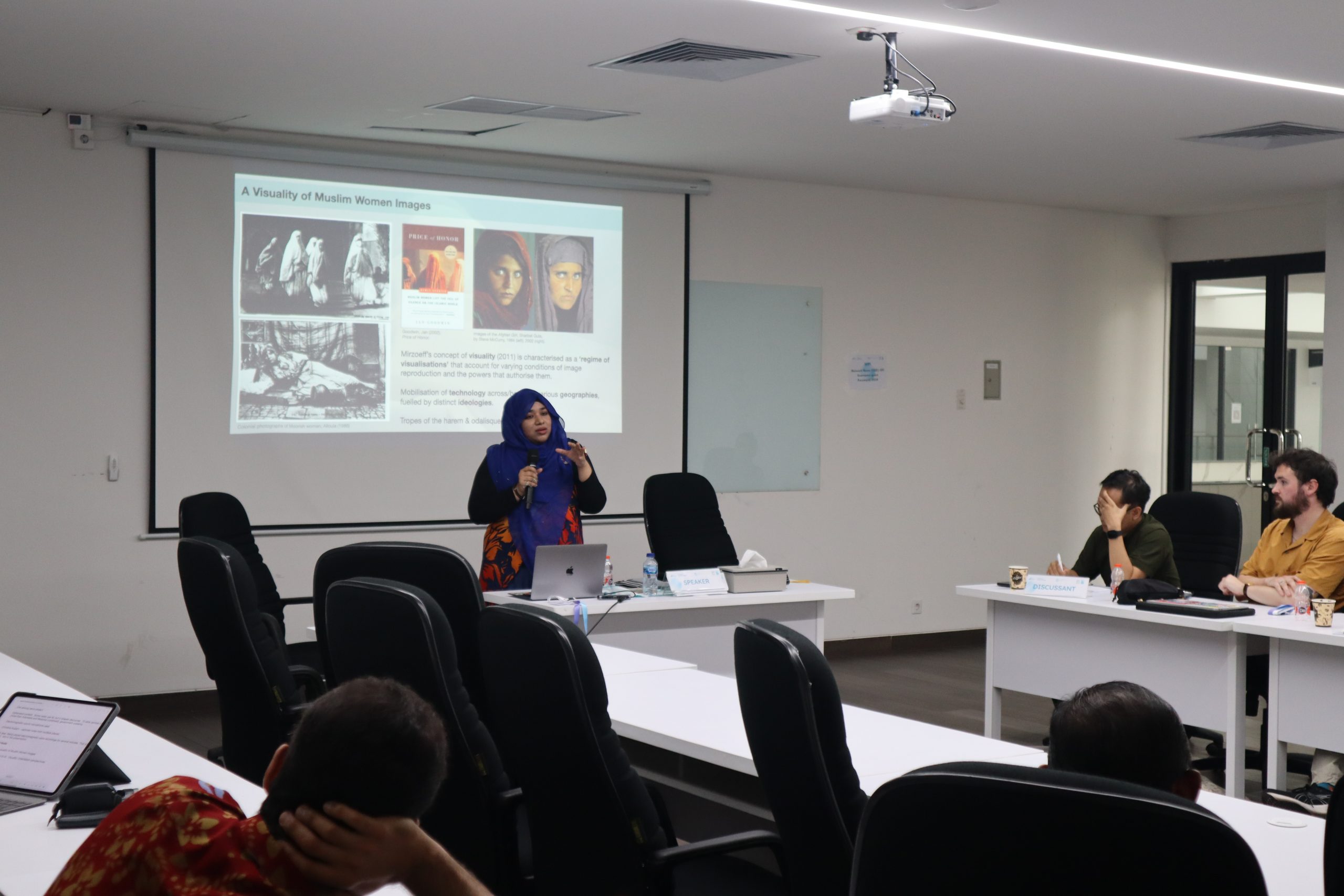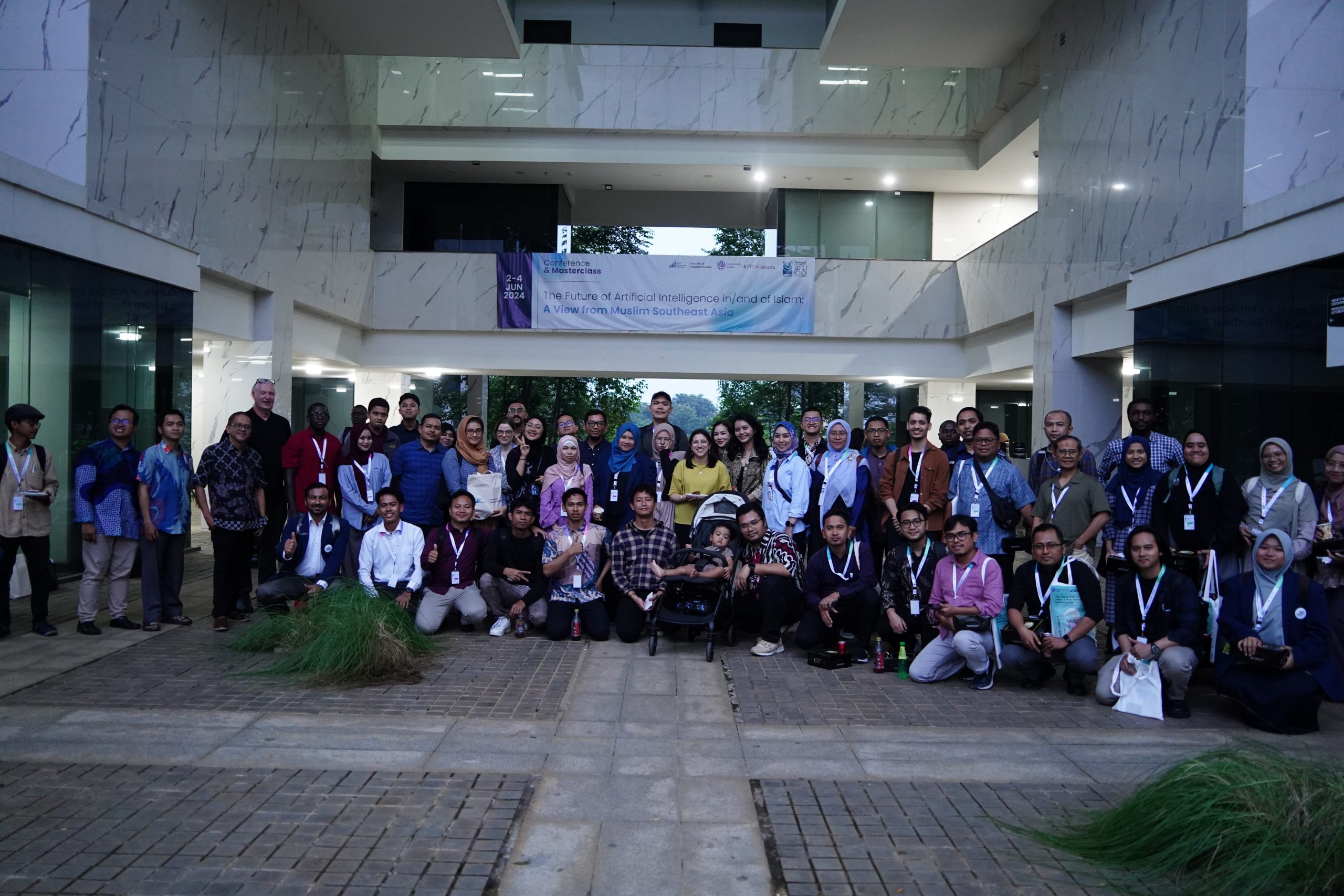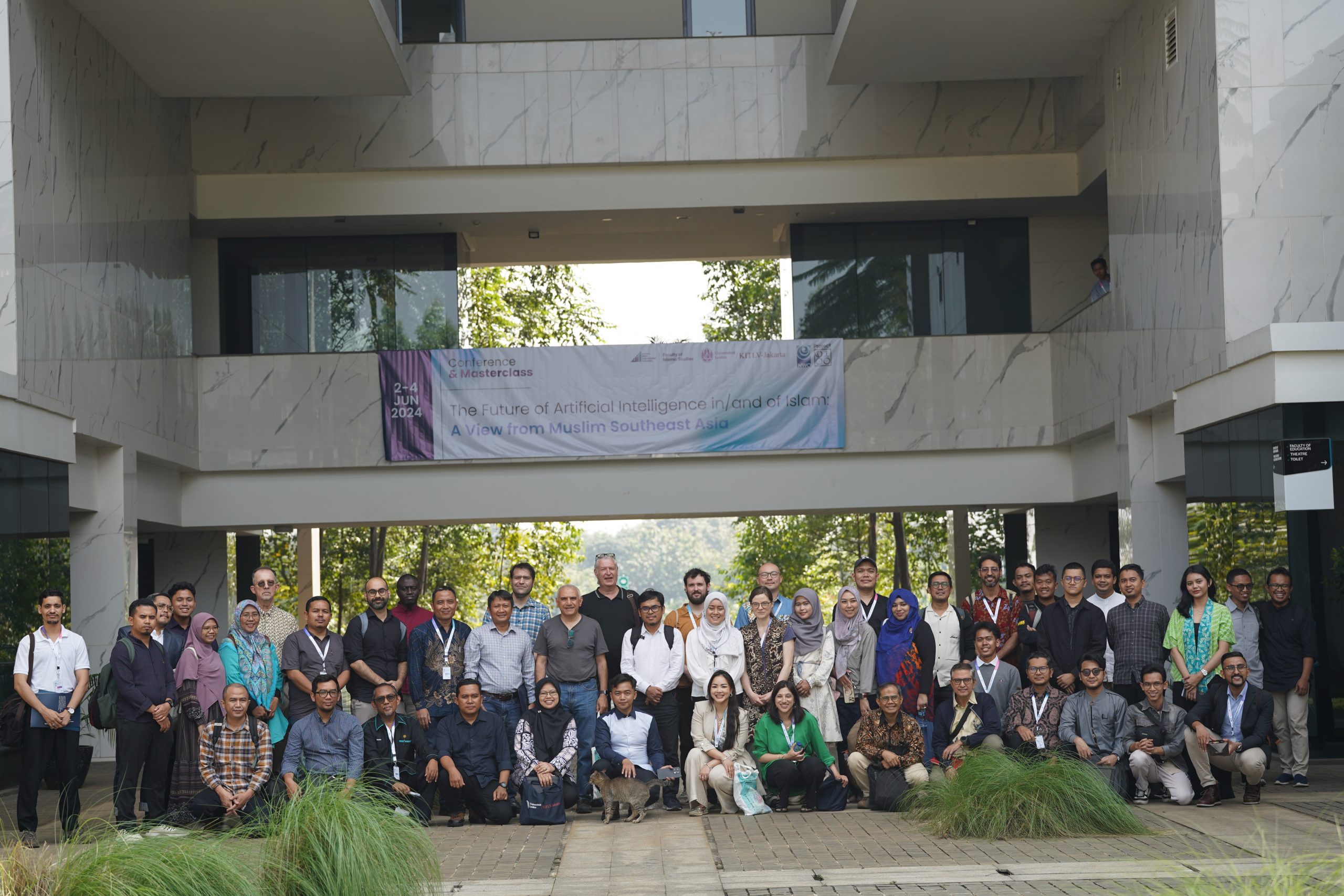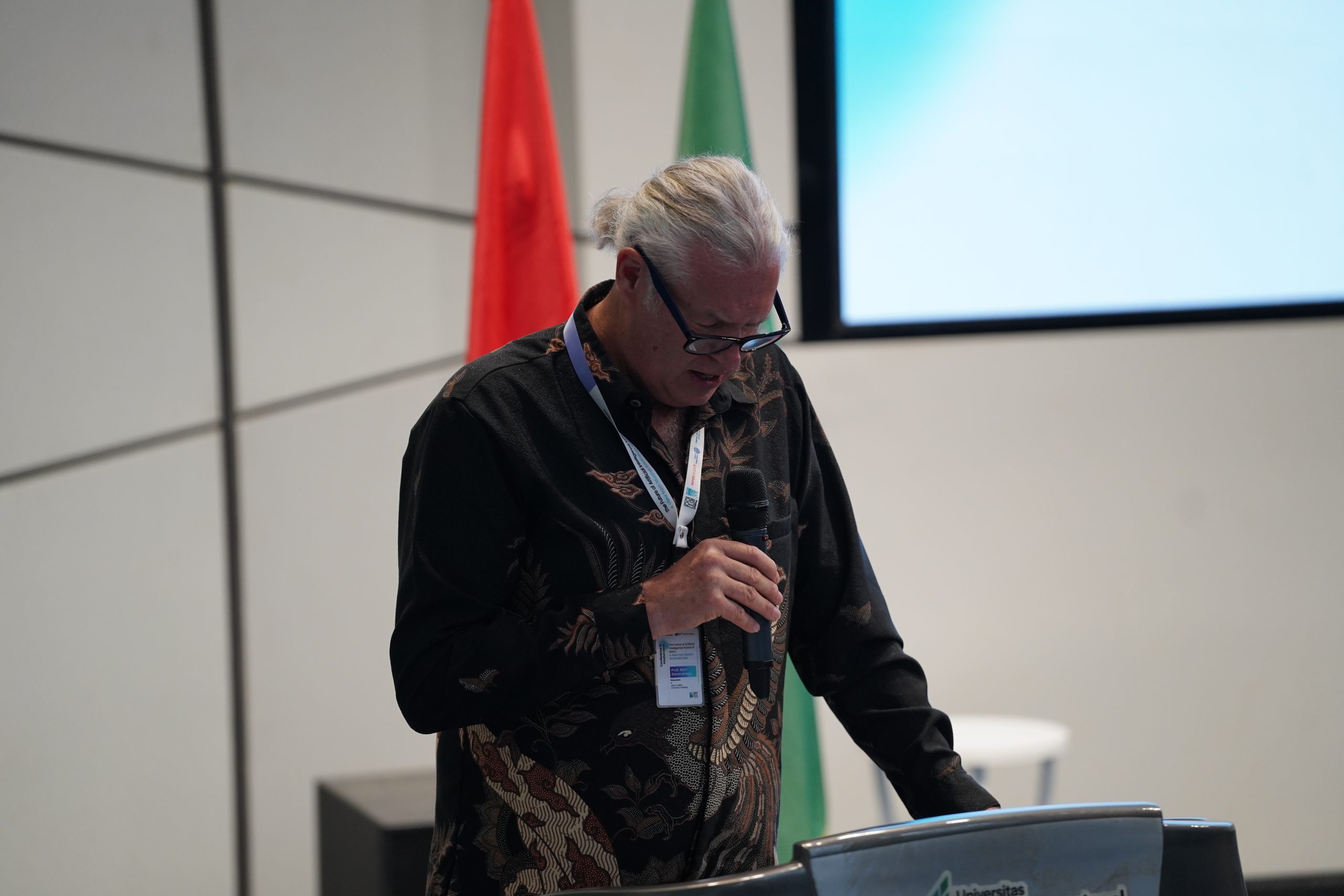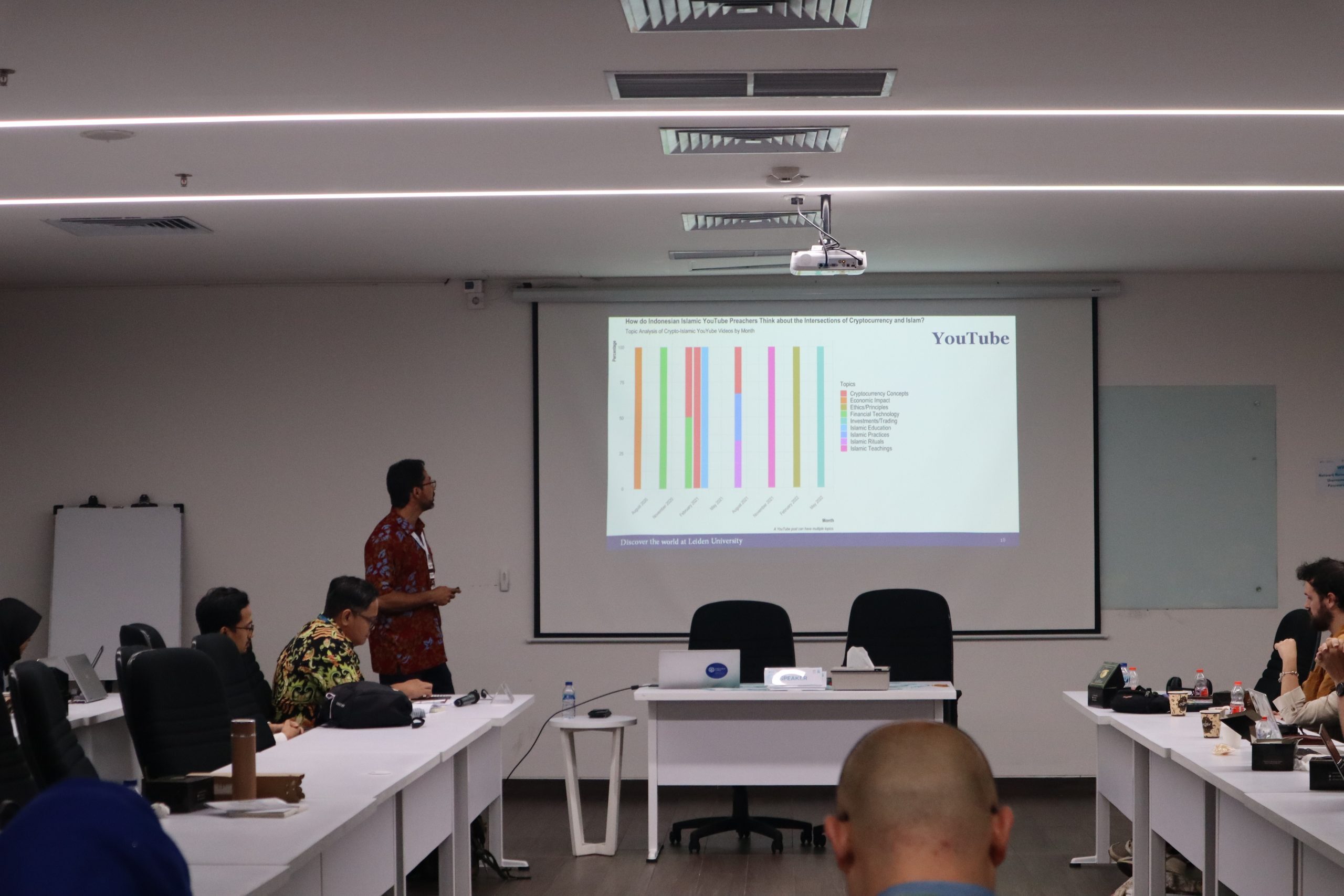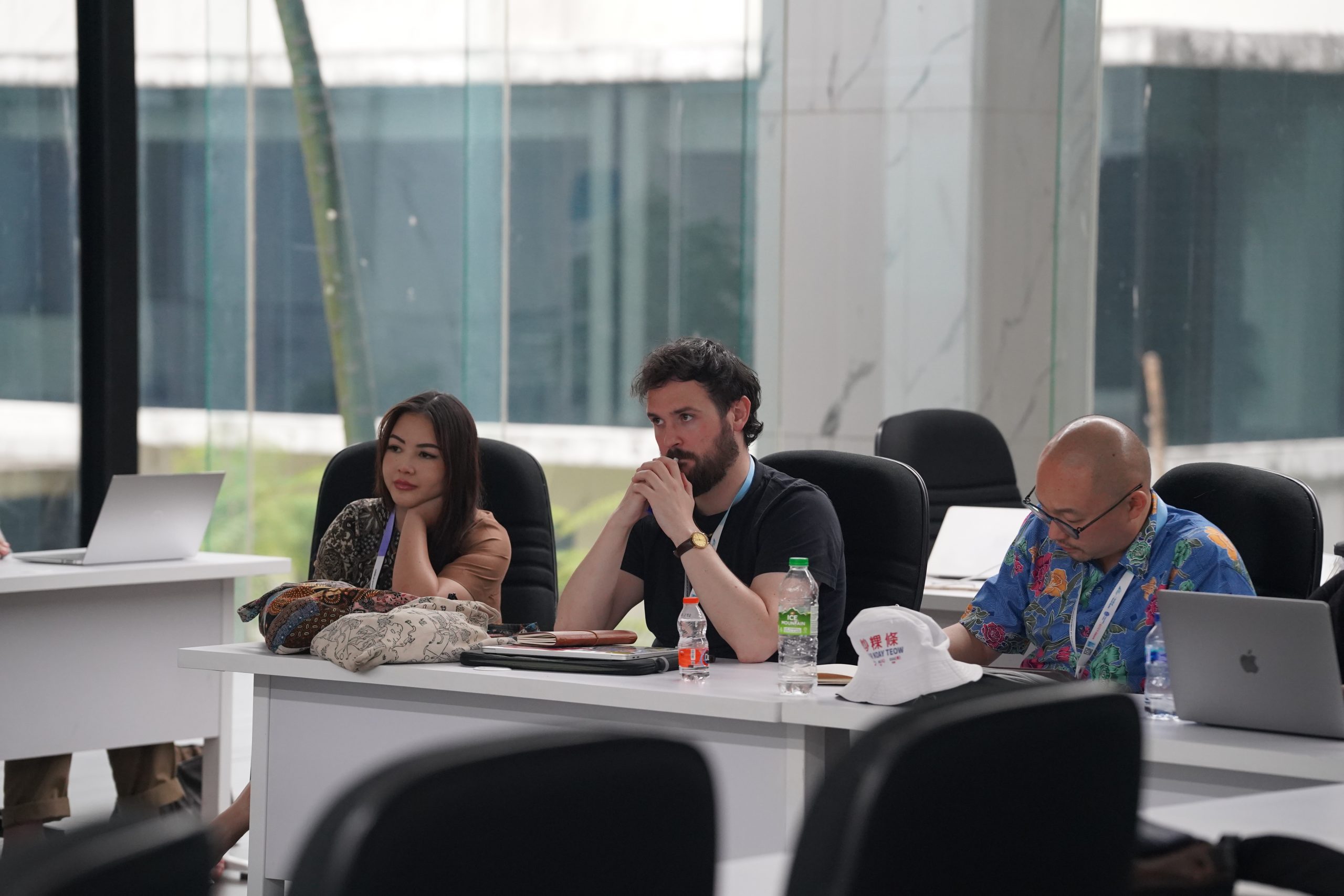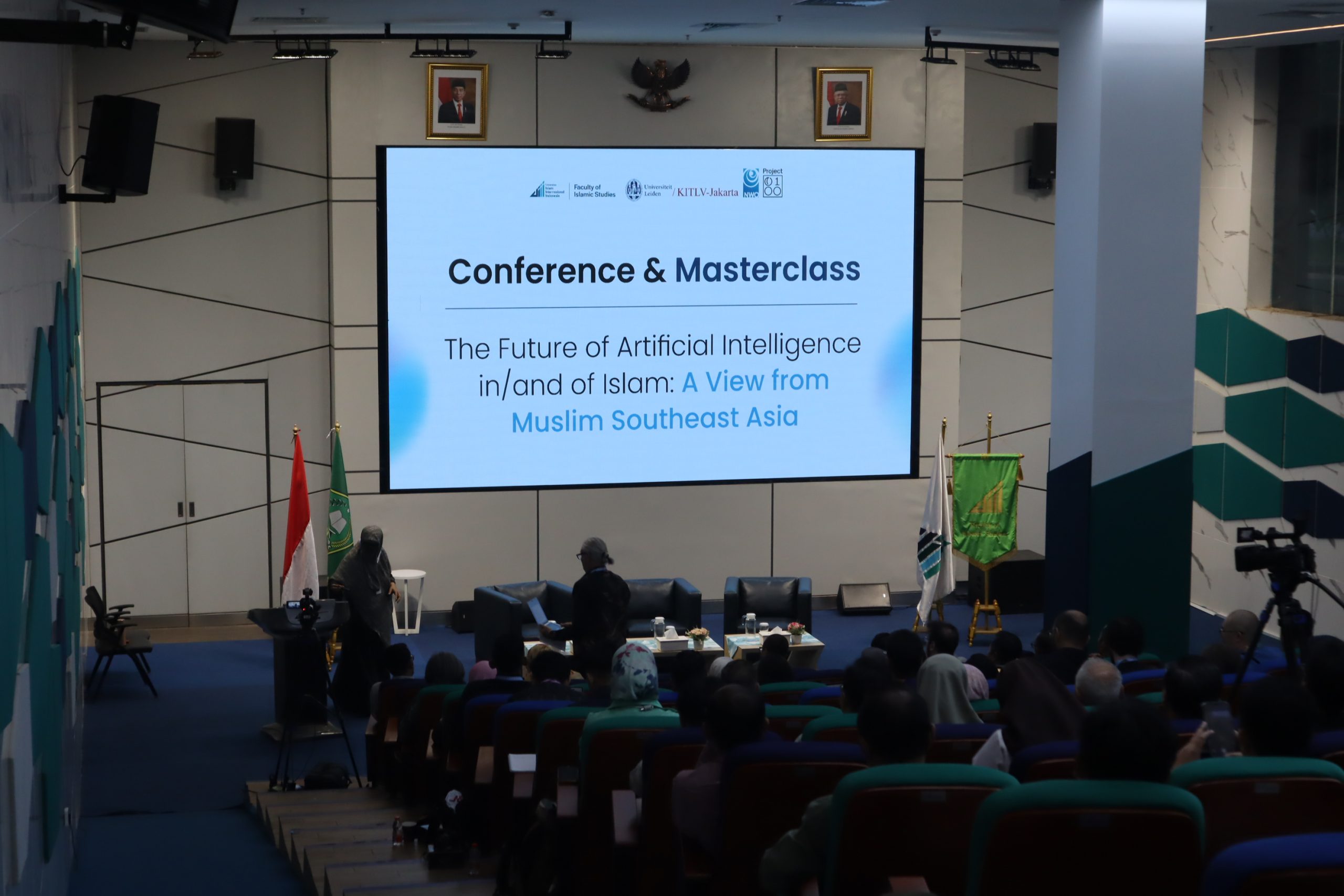The Future of Artificial Intelligence in/and of Islam: a view from Muslim Southeast Asia
This conference was organized in collaboration with KITLV Jakarta and Universitas Islam Internasional Indonesia (UIII), taking place from July 2nd-July 4th 2024.
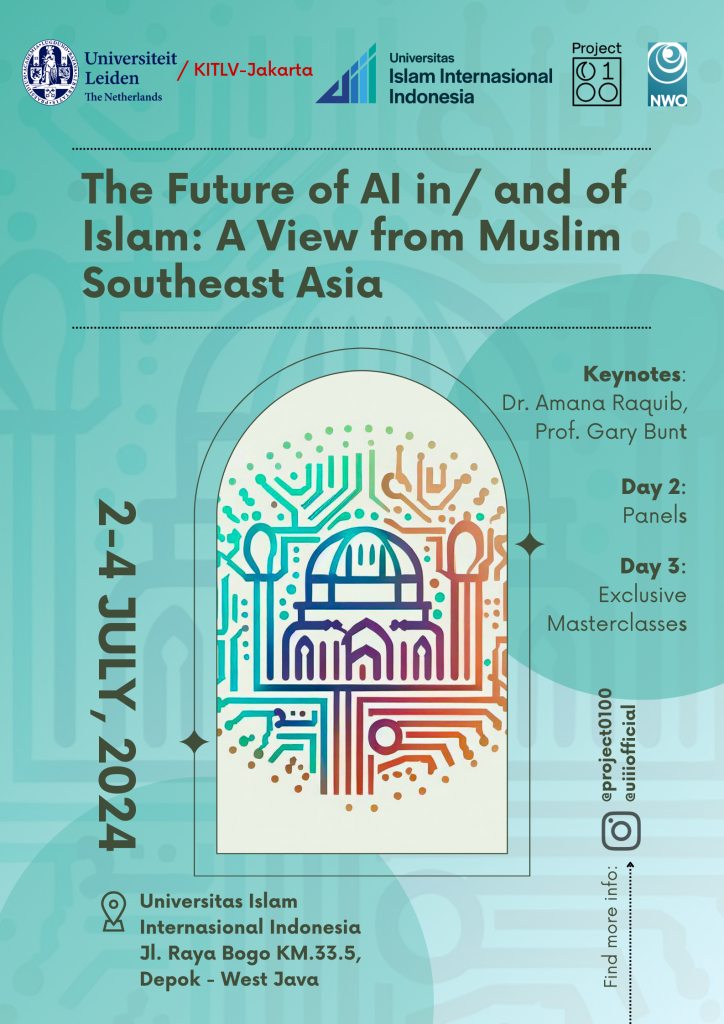
Both AI and Islam operate on future-oriented scripts, with codes shaping human behaviour, one computationally and the other socially. Ethical dilemmas emerge at their intersection, posing questions on AI as a potential religion for (secular) technologists and its impact on religious conviction. Block chain currencies are currently revolutionizing Islamic banking, algorithms are automating Islamic jurisprudence and ChatGPT is used to co-author the Friday sermon. But how, for example, do life extending AI technology and associated ideas of transhumanism shape Islamic notions of submission, authority, afterlife or personhood? Are Muslims prohibited from mimicking the creation of life through AI? Can robots mastering Islamic knowledge ‘convert’? And can we mobilize Islamic principles such as akhira (the hereafter) and khilafa (stewardship) to address environmental accountability within the context of burgeoning data accumulation, heightened by the exploitative infrastructure of server farms and big data governance?
As AI becomes intertwined with religious values, we explored the applications of algorithms in halal lifestyle apps and other everyday AI driven technologies to understand how religious values may serve as moral compasses for AI designers and users in otherwise secular projects. Our exploration extends to the disruptive potential of AI in Muslim Southeast Asian societies, where religious principles strategically respond to the evolving meanings and contradictions of AI driven technologies. Once perceived as the margins of the Muslim world and derogatively depicted as ‘Tropical Islam’, Southeast Asia has increasingly developed into the digital heartlands of Islam. Without a doubt, this is the region where the Islamic information society is unfolding most conspicuously, and AI is at the heart of it all.
Focusing on a range of Muslim Southeast Asian contexts, we therefor addressed key actors, possible futures in the making, examined intersections and collisions of the digital and the spiritual, and together tried to understand resulting challenges and dilemmas.
This international workshop was initiated by several prominent key notes on the role of future thinking and ethics in the world of AI and Islam, after which a selection of speakers in the next one and a half days discussed issues such as the possible role of (generative) AI in Islamic education, spirituality and AI, Muslim artists navigating the digital realm, Big Data Governance and Muslim minorities and Green Islam and the Digital Economy. The closing day 3 of the conference consisted of a set of thematic master classes (on the role of AI and Islam in respectively Education and Ethics, and Methods required for this kind of research) aimed at local early career scholars.
Conference Report
A report on the conference is available here.
Anoraga, B. (2024). The Future of Artificial Intelligence in/and of Islam: A View from Muslim Southeast Asia. Journal of Islamic and Muslim Studies 9(1), 115-123.

